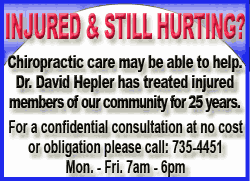| ||||||||||
| ||||||||||
Its benefits can be seen in brain imaging studies, said Dr. Eric Plakun, who leads an American Psychiatric Association committee working to restore interest in psychotherapy by psychiatrists.
"The couch is far from dead," Plakun said. "The couch turns out to be an effective 21st century treatment."
Talk therapy can be done by psychiatrists less expensively than split treatment, where a patient sees a doctor for pills and a counselor for talk therapy, Plakun said, citing two prior studies.
It also works better than drugs for some patients, such as those with chronic major depression and a history of childhood trauma, he said.
Accreditation requirements for psychiatric residency programs are putting more emphasis on talk therapy, Plakun said. That may slow the decline of the couch.
The new study doesn't answer an important question: whether other professionals are picking up the slack, said psychologist David Mohr of Northwestern University's Feinberg School of Medicine. Psychologists and social workers provide counseling but most cannot prescribe drugs, so it's possible that for patients who require both talk and pills, some coordination in care may be lost, Mohr said.
___
On the Net:
Archives of General Psychiatry: http://archpsyc.ama-assn.org/
American Psychiatric Association: http://www.psych.org/
[Associated
Press;
Copyright 2008 The Associated Press. All rights reserved. This material may not be published, broadcast, rewritten or redistributed.

News | Sports | Business | Rural Review | Teaching & Learning | Home and Family | Tourism | Obituaries
Community |
Perspectives
|
Law & Courts |
Leisure Time
|
Spiritual Life |
Health & Fitness |
Teen Scene
Calendar
|
Letters to the Editor